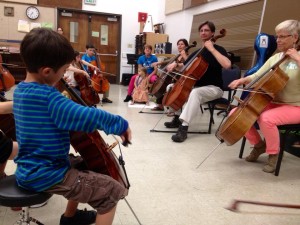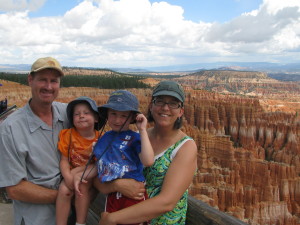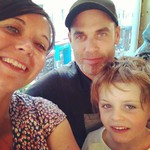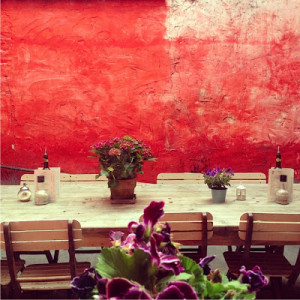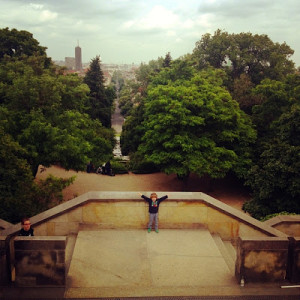Becoming a cello parent
Some of the Parenting Reimagined interviews have autobiographical roots. This week’s interview with musician, K.C. Simba-Torres, was prompted by recent events in my own parenting life. Her interview will go live on Tuesday.
Six months ago my son began playing the cello. He is learning through the Suzuki method which means that we are learning. I am his practice partner. I go to every lesson. I sit across from him during each daily practice session to remind him to hold his bow straight, not skimp on the dotted half note, and keep his feet flat on the floor.
I have never played a cello (or a violin or anything that requires a bow). I don’t know much about classical music. I didn’t know what rosin was until a few months ago. I wasn’t really planning to enter the music world. My husband and I were both star high school athletes, so I really pictured myself as more of a sports mom.
A year ago, my son informed me that he would kindly decline to participate in any activities involving balls (baseball, basketball , soccer, tennis, water polo, bocce ball…). It is not a decision he has shown any signs of wavering on.
He is not interested in accessing my inner sports mom.
I told him that he could pass on the “ball activities”, but that it was important for him to choose something that he wanted to try to be good at. Something that would require him to practice and persevere and work hard. Something that he really loved and wanted to spend time doing.
Chess? Karate?
He said he would like to play the cello. I asked him if he was sure. He said yes. I waited a week. I asked again. He said cello. I waited another month. I asked again. He said cello. I asked him why. He said he liked the low notes.
So… we bought a cello (two actually, the first one was too small). And I began to delicately stalk the only Suzuki teacher in town.
Life is different now. In six months we’ve become a music family. We are still working out lots of the details and making lots of mistakes. But, we’re in. We’re committed. We took our summer vacation to a Suzuki Institute. We begin each day by listening to a playlist of songs from Suzuki Cello Book One. We take the cello with us on every weekend away. We don’t miss a day of practice.
Eventually, I am going to have to trade in my Prius so that we can transport a full-sized cello and still fit both kids.
The addition of the cello is just one of the many ways that my life has been transformed by becoming a parent. It is completely new territory and most of the time I feel quite inferior and like I am stumbling through the whole thing. (Hmm, that sounds a lot like how I might describe parenting in general).
My son and I are learning together. He is depending on me to encourage him, support him, challenge him, and always, always show up for lessons and practices and recitals any other cello-related festivities that might come our way. And I want to be there. I want to watch him smile when he is satisfied with himself. I want to watch him try hard and create something he enjoys. I want to see him walk on a stage, take a deep breath and find a courage within himself. I want to celebrate each new song. I want him to know that practice pays off and that creating beauty is a valuable endeavor.
Tchaikovsky here we come.

